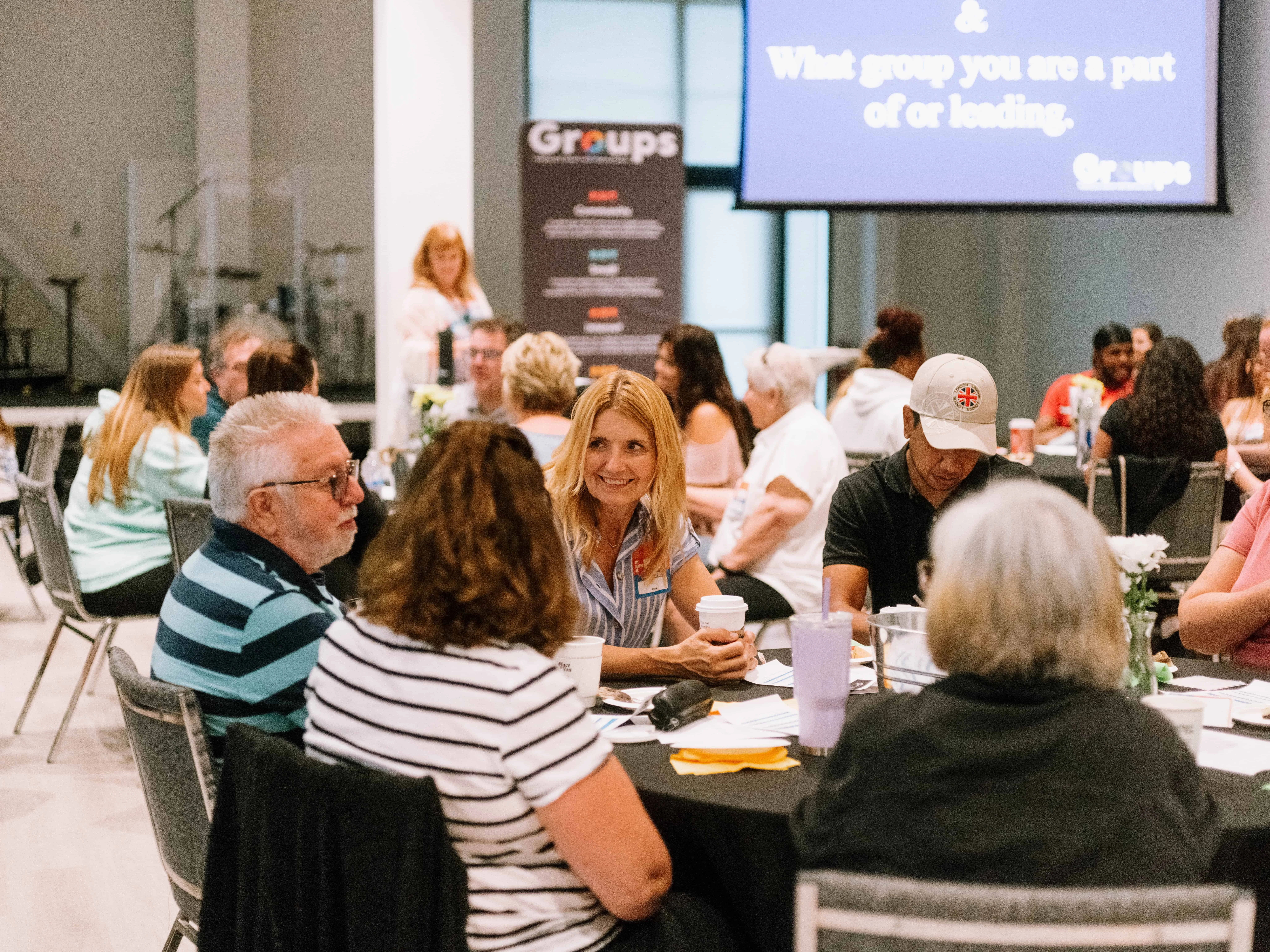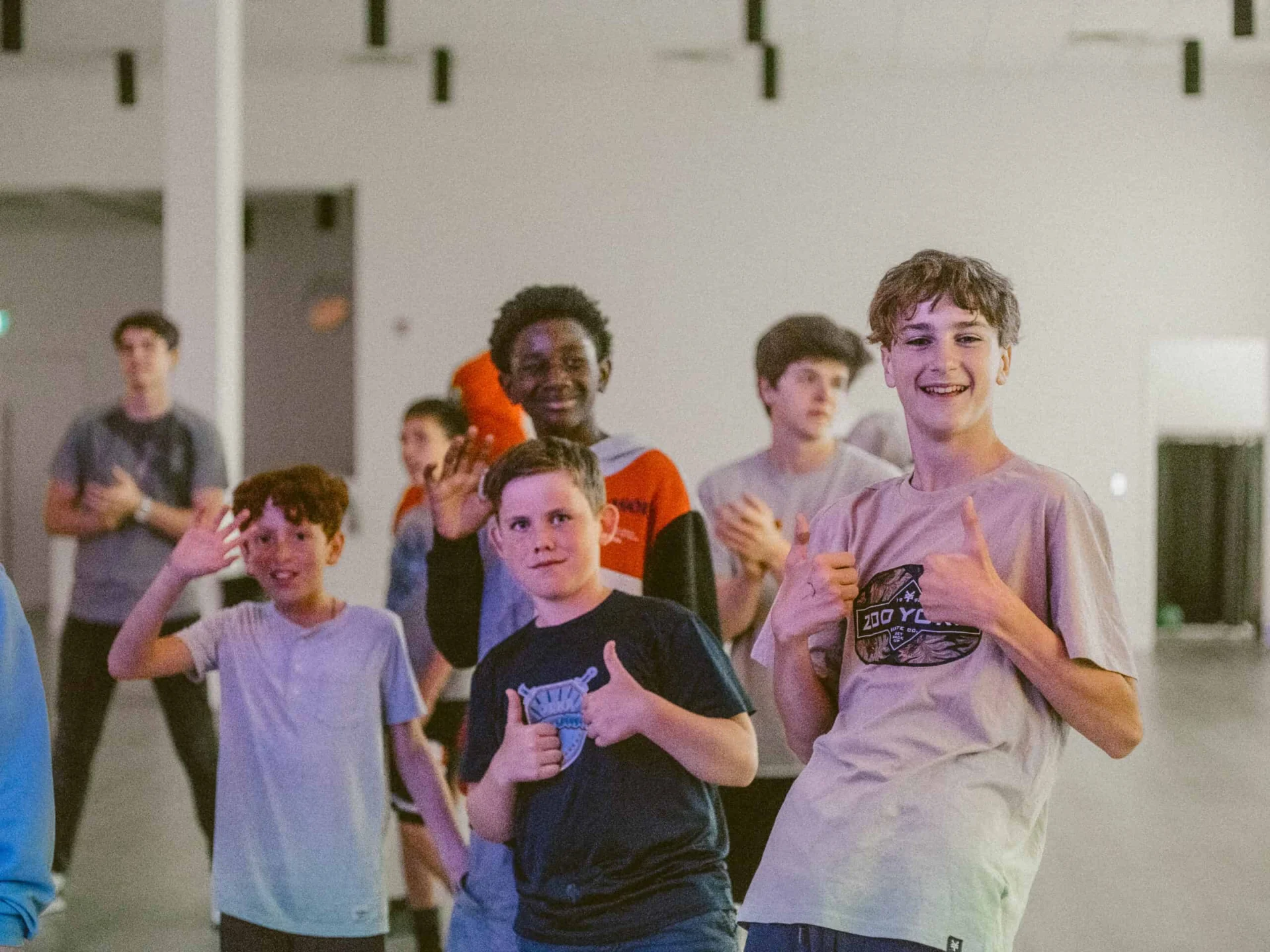It was happening again.
Cassandra felt tense as group members walked in late yet again.
Their reasons weren’t much different than last time. Robert got tied up in traffic because his commute leaves him with just enough time to get from work to group. The only time Barb seems to fit in her gym time is before the group meeting, so she stops to grab a bite to eat along the way. Celeste had to wait for her husband to come home in time to watch the kids before she can leave.
Everyone seemed to have a reasonable reason why they were late, so Cassandra felt bad saying anything to address it.
But it meant that because everyone was catching up as they walked and mentally making the shift to group time, this delayed the official start time. Once the discussion time started, group members had lots to share, pushing the end time later and later.
One group member always hung around until everyone left to connect with Cassandra because she didn’t feel comfortable sharing personal things she was going through with the rest of the group. Cassandra enjoyed listening and liked this group member, but because she had to get up early for her work shift, it was important that she get to bed at a decent time.
She was starting to feel guilty for not being more flexible with her group members’ schedules and needs, but she had to manage her life, too… didn’t she?
Here are three way to manage time within a group’s meeting:
1. Start On Time
Whether everyone in the group arrives on time, starting on time (regardless of the latecomers) is important for several reasons. It sets consistent precedence. If we often start 10 minutes late, it will likely just become part of people’s schedules and expectations. As a group facilitator, our role is to care for and manage the group, not just each individual. Starting on time respects those who arrived on time. Also, it allows leaders to stick with our plan for the evening rather than cutting something else short.
Tips for managing chronic disruptive lateness:
– Communicate with all the group members in advance about what to expect of the agenda and the start time, and how lateness will be handled. Let them know what you’d prefer them to do if they are late (ie: “Don’t worry about knocking. Please come in quietly”).
– Avoid having “the lateness talk” to the whole group at the beginning of the meeting when the latecomers are absent.
– Offer grace knowing balancing priorities and the unexpected can be a challenge in some seasons more than others.
– Change the order of the agenda so that the most flexible part is at the beginning or the end.
– Consider starting later or shortening the meeting time if the start time isn’t good for most of the group members.
2. Keep the Agenda Moving
To create an environment for group members to get to know one another, care for each other and grow together, there are likely several different parts to your weekly group gathering. For example, a home group or community group might include refreshments, icebreakers, sharing answered prayers, study, discussion, prayer. As facilitators, it’s on us to keep things flowing, but we know that’s easier said than done.
Here are some ways to keep things moving:
– Approach the time-keeper role more as a tour guide rather than a referee. For instance, when transitioning to the next part of the meeting, you could mention the time allotted for it and why. (ie: We’re going to watch the video now, then have our discussion for 20 minutes so that we leave enough time for prayer requests before anyone in our group has to leave.)
– For long-winded group members, when asking for people to share, you could follow up the discussion question with a specific timeframe (ie: … who has a 2-minute story about this? Or “Let’s hear from two people who haven’t shared yet.”
3. Create a Clear Ending
While it may feel awkward or unspiritual to end the group meeting on time, setting expectations about the end time creates a healthier environment.
It helps us consider other dynamics beneath the surface, such as honouring people who have to be at work early the next morning and feel like they’re missing out by leaving first. Others might have to get home to a babysitter, pick up their kids on time or have other commitments. In rented or community-based spaces, there might be booking times or extra custodial fees to consider. Allowing conversations to drag on that aren’t enjoyed by everyone can feel tedious to some, and they will eventually drop off.
Tips for ending on time:
– Be clear about the meeting agenda
– Create an official end time with a buffer connection time (ie: “We officially end our discussion and prayer time at 8:30 pm so that there’s time for coffee and talking afterward, but please respect our host and leave by 9:00 pm.”)
– Cut something out of your agenda earlier in the meeting if one part takes longer than planned or if you sense God at work in the group members’ lives and you want to linger there. This honours the process of spiritual growth that’s happening while still ending on time.
– When sensing that sharing prayer requests at the end will take the group over time, you could use different approaches in the prayer time. (ie: “In the ten minutes we have left, let’s do something different than sharing all our prayer requests. Instead, tune into something you observed or how you see God at work in the person on your left. Let’s go around the circle and pray into that tonight.”)
Watching the clock is a healthy habit to maintain in the big picture of your group and building this consistency helps instill trust and respect within the group.
Based on these tips, how would you handle Cassandra’s group situation?
















